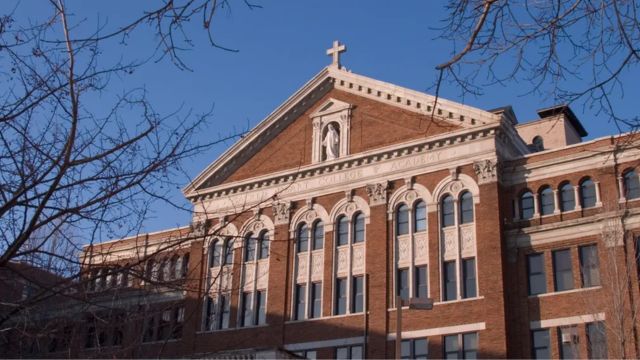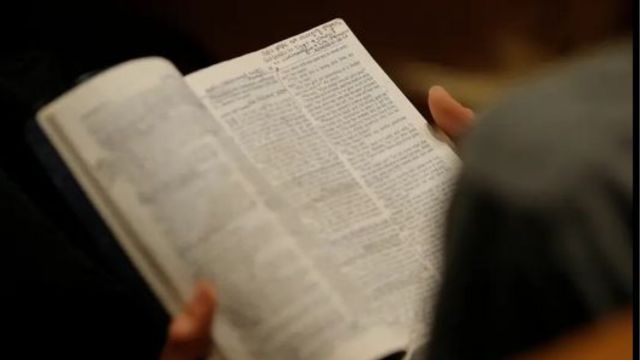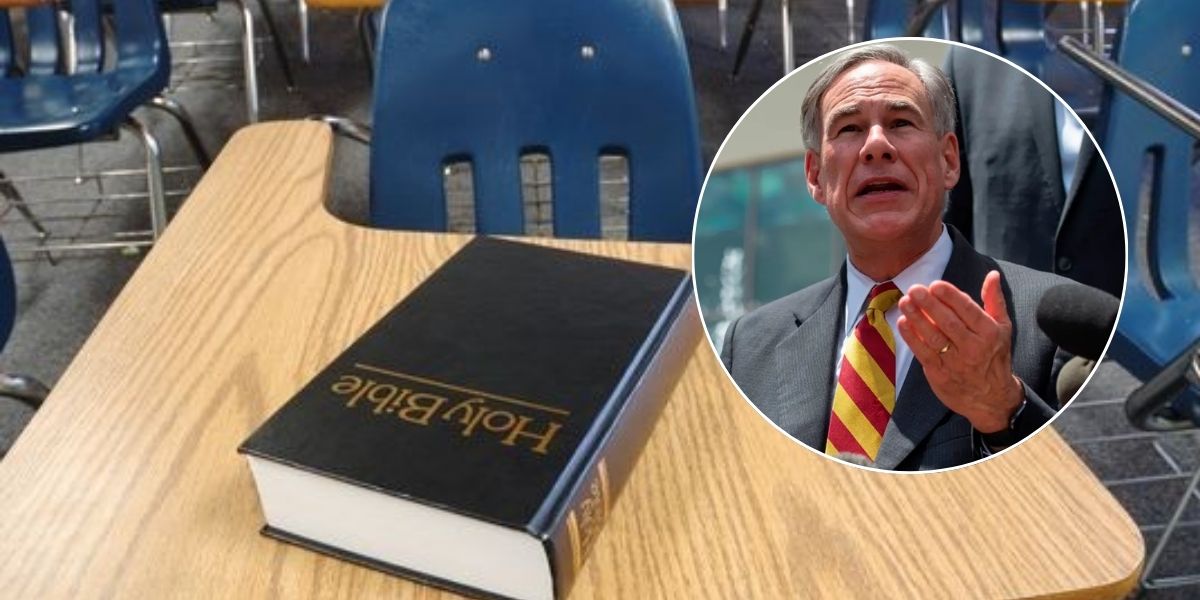On Thursday, a coalition of legal organizations urged the leaders of Texas school districts to turn down the adoption of a state curriculum that was just approved and is filled with references to Christianity and biblical principles.
On Thursday, the American Civil Liberties Union of Texas, Americans United for Separation of Church and State, Center for Inquiry, and the Freedom From Religion Foundation sent a letter to superintendents and their school boards.
The letter stated that adopting the curriculum called Bluebonnet Learning would “unlawfully impose a set of religious beliefs upon your students and violate their constitutionally guaranteed right to be free from religious coercion.”
The letter indicates that the groups are open to the possibility of taking legal action in order to prevent Texas schools from using the materials.
“Our organizations, which have long fought for religious freedom for all, will closely monitor any school district across the state that considers implementing the Bluebonnet curriculum and will take any action that is necessary and appropriate to protect the rights of Texas children and their parents,” according to the letter.
A representative of the Texas Education Agency stated in a response to the letter that “public schools may not provide religious instruction, and there is no religious instruction in Bluebonnet Learning.”
“Bluebonnet Learning is comprised of instructional materials that have a broad base of topics including history, literature, the arts and culture which, when contextually relevant, can include religious topics sampling from a wide range of faiths,” according to the statement.
“The materials include content from or about varied religious source materials for the literary and historical value of the content and its connection to creating a strong background of knowledge for students.”
With a temporary governor Greg Abbott appointee providing the decisive vote, the State Board of Education barely authorized the free-to-use elementary school curriculum in November.
If schools decide to use the resources this year, they can start using them for free in the 2025–2026 academic year.
Districts who decide to do so will receive a $60 incentive per student from the state.

The funds would enable schools to defray the cost of printing the curriculum’s materials, according to the education agency.
The curriculum advances or establishes ideas in other courses, such social studies and history, through language arts and reading instruction.
Religious studies academics are among the many critics of the lesson who point out that Christianity is mentioned more than any other religion in the curriculum’s courses.
They think the discrepancy might allow the state to have extensive control over how children learn about religion, erode church-state separation, and result in the bullying and exclusion of non-Christian kids.
Some teachings have also been criticized for being inaccurate, claiming that the materials minimize America’s history of racism and slavery.
According to many, the curriculum is a component of the burgeoning Christian nationalism movement, which maintains that the formation of the United States was predetermined by God and that Christians should be given preference in its institutions and laws.
Curriculum proponents and education officials claim that incorporating Christian connections will help pupils better comprehend the nation’s history and the global influence of key texts like the Bible.
They claim that the content is inclusive of many religions and only mentions religion when it is relevant.
Additionally, officials think the curriculum offers pupils with a thorough grasp of the end of slavery, emphasizes the significance of the Civil Rights Movement and Juneteenth, and honors the accomplishments of Black Texans.
After the curriculum was approved, Abbott referred to Bluebonnet as “a critical step forward to bring students back to the basics of education and provide the best education in the nation.”
Indictment Issued Against Ex-Fed Senior Adviser on Economic Espionage Charges
The South San Antonio school district is the only school board that has voted to implement the curriculum since it was approved in November.

The Fort Worth Eagle Mountain-Saginaw district intends to utilize the math component of the products while avoiding the reading materials that incorporate Bible lessons.
The Conroe school system, which is north of Houston, began debating whether or not to implement the courses.
Additionally, the North Texas school district of Denton made it known that it has no intention of making any changes to the curriculum.
“There’s a lot of interest from districts around the state in Bluebonnet, and we are sort of non-stop helping answer those inquiries, supporting them, answering their questions, trying to help facilitate transition,” Texas Education Commissioner Mike Morath stated to the State Board of Education.
When it comes to selecting lesson plans, school districts have a lot of discretion.
For instance, a district might choose to employ some of Bluebonnet while ignoring other parts, such the chapters that discuss Christianity.
Alternatively, a district can decide to use a different curriculum for other subjects while making frequent references to the biblical themes taught in Bluebonnet.
New Directive: White House Orders End to Pronouns in Federal Agency Email Signatures
According to legal experts, recent decisions by the conservative majority on the U.S. Supreme Court have undermined decades of precedent and left it unclear what governmental actions are in violation of the Establishment Clause, which forbids the state from endorsing a certain religion.
For example, the Supreme Court ruled that a high school football coach in Washington State did not violate the First Amendment by praying privately on the field following team games.
The justices’ decision put an end to what many called the Lemon test, a criterion the court used to determine whether a government action constituted a “excessive entanglement” between church and state.
Austin Kinghorn, the state’s deputy attorney general for legal strategy, told members of the State Board of Education last year that he believes that teaching about religion and the Bible is “absolutely permissible” under the Constitution.
The legal groups’ position that the Bluebonnet curriculum “treats Christianity and the Bible as true” was stated in the letter they sent on Thursday.
Numerous curricular courses were referenced by the organizations, including one on the painting of the Last Supper for fifth graders.
According to the groups, the Book of Matthew is presented as “a literal and historical record of what happened.”
The groups cite a lesson that instructs teachers to note that the “Christian Bible explains that Jesus rose from the dead” and that portrays Jesus as a historical figure “without any qualification.”
The groups also take issue with a lesson that encourages students to repeat the first line of the Book of Genesis’ creation myth and an exercise that asks them to recall the sequence in which the Bible claims that God created the universe.
The Bluebonnet curriculum is “a clear and obvious Establishment Clause violation, even if Texas legislators have decided to pretend otherwise,” according to a statement from Richard Conn, general counsel for the Center for Inquiry, a group that oppose religion in government.
“We urge school superintendents to stand up for the rights and constitutionally protected freedoms of the students, families, and communities they serve, and to avoid making that same mistake,” Conn continued.







Leave a Comment